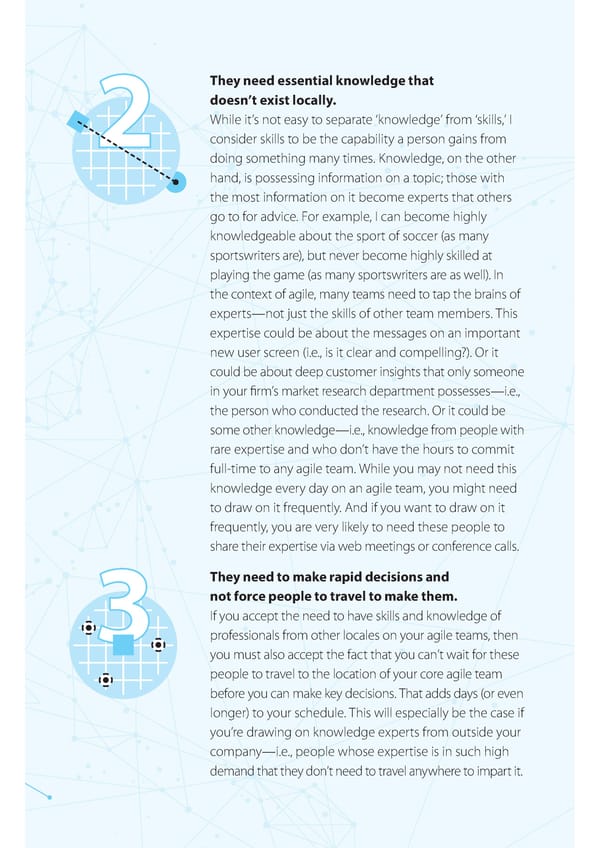They need essential knowledge that doesn’t exist locally. While it’s not easy to separate ‘knowledge’ from ‘skills,’ I consider skills to be the capability a person gains from doing something many times. Knowledge, on the other hand, is possessing information on a topic; those with the most information on it become experts that others go to for advice. For example, I can become highly knowledgeable about the sport of soccer (as many sportswriters are), but never become highly skilled at playing the game (as many sportswriters are as well). In the context of agile, many teams need to tap the brains of experts—not just the skills of other team members. This expertise could be about the messages on an important new user screen (i.e., is it clear and compelling?). Or it could be about deep customer insights that only someone in your firm’s market research department possesses—i.e., the person who conducted the research. Or it could be some other knowledge—i.e., knowledge from people with rare expertise and who don’t have the hours to commit full-time to any agile team. While you may not need this knowledge every day on an agile team, you might need to draw on it frequently. And if you want to draw on it frequently, you are very likely to need these people to share their expertise via web meetings or conference calls. They need to make rapid decisions and not force people to travel to make them. If you accept the need to have skills and knowledge of professionals from other locales on your agile teams, then you must also accept the fact that you can’t wait for these people to travel to the location of your core agile team before you can make key decisions. That adds days (or even longer) to your schedule. This will especially be the case if you’re drawing on knowledge experts from outside your company—i.e., people whose expertise is in such high demand that they don’t need to travel anywhere to impart it.
 The Case for Location-Independent Agile Page 6 Page 8
The Case for Location-Independent Agile Page 6 Page 8